The Deseret alphabet is a phonemic English-language spelling reform developed between 1847 and 1854 by the board of regents of the University of Deseret under the leadership of Brigham Young, the second president of the Church of Jesus Christ of Latter-day Saints. George D. Watt is reported to have been the most actively involved in the development of the script's novel characters, which were used to replace those of Isaac Pitman's English phonotypic alphabet. He was also the "New Alphabet's" first serious user. The script gets its name from the word deseret, a hapax legomenon in the Book of Mormon, which is said to mean "honeybee" in the only verse it is used in.

Steinway & Sons, also known as Steinway, is a German-American piano company, founded in 1853 in New York City by German piano builder Heinrich Engelhard Steinweg. The company's growth led to a move to a larger factory in New York, and later opening an additional factory in Hamburg, Germany. The New York factory, in the borough of Queens, supplies the Americas, and the factory in Hamburg supplies the rest of the world.

Thomas Spencer Monson was an American religious leader, author, and the 16th president of the Church of Jesus Christ of Latter-day Saints. As president, he was considered by adherents of the religion to be a prophet, seer, and revelator. Monson's early career was as a manager at the Deseret News, a Utah newspaper owned by the LDS Church. He spent most of his life engaged in various church leadership positions and public service.
William Harrison Folsom was an architect and contractor. He constructed many of the historic buildings in Utah, particularly in Salt Lake City. Many of his most prominent works were commissioned by the Church of Jesus Christ of Latter-day Saints. For a time he was sustained as the Church Architect, a calling in the church.
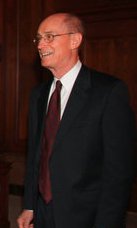
Henry Bennion Eyring is an American educational administrator, author, and religious leader. Eyring has been the second counselor to Russell M. Nelson in the First Presidency of the Church of Jesus Christ of Latter-day Saints since January 14, 2018. Previously, Eyring was the first counselor to Thomas S. Monson in the First Presidency from 2008 until Monson's death on January 2, 2018. Eyring was the second counselor to Gordon B. Hinckley in the First Presidency from October 6, 2007, until Hinckley's death on January 27, 2008.

The Deseret News is a multi-platform newspaper based in Salt Lake City, published by Deseret News Publishing Company, a subsidiary of Deseret Management Corporation, which is owned by the Church of Jesus Christ of Latter-day Saints. Founded in 1850, it was the first newspaper to be published in Utah. The publication's name is from the geographic area of Deseret identified by Utah's pioneer settlers, and much of the publication's reporting is rooted in that region.

Deseret Book is an American publishing company headquartered in Salt Lake City, Utah, that also operates a chain of bookstores throughout the western United States. It is a wholly owned subsidiary of Deseret Management Corporation (DMC), the holding company for business firms owned by the Church of Jesus Christ of Latter-day Saints. Deseret Book is a for-profit corporation registered in Utah. Deseret Book publishes under four imprints with media ranging from works explaining LDS theology and doctrine, LDS-related fiction, electronic resources, and sound recordings such as The Tabernacle Choir at Temple Square albums.
Music has had a long history in the Church of Jesus Christ of Latter-day Saints, from the days in Kirtland, Nauvoo, and the settlement of the West, to the present day. In the early days of the Church, stripped-down Latter-Day Saint folk music, which could be sung without accompaniment due to the lack of instruments in Utah, was popular. In the 19th century, the Mormon Tabernacle Choir was created and began touring, while musicians began writing devotional and praise music with a Latter-Day Saint influence, paralleling the success of Christian Contemporary Music. Several organizations have existed and do exist to promote these artists, such as Deseret Book and the now-defunct Faith-centered Music Association. Starting in the late 20th century and to the present day, Latter-Day Saints have been increasingly involved in modern popular music in America and elsewhere in the World.
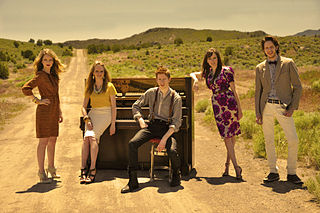
The 5 Browns are a classical piano ensemble consisting of five siblings—two brothers and three sisters. Their repertoire ranges from beloved concert hall staples, such as Igor Stravinsky's The Rite of Spring, Gershwin's Rhapsody in Blue, and Grieg's In the Hall of the Mountain King to lesser known works like Nico Muhly's Edge of the World and John Novacek's Reflections on Shenandoah. In addition to their work on five pianos, The 5 Browns perform and record works for solo piano, two pianos, and in various other combinations.
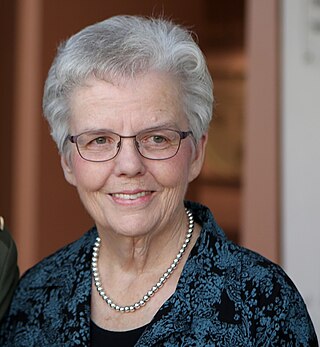
Janice Kapp Perry is an American composer, songwriter, and author. As a member of the Church of Jesus Christ of Latter-day Saints, she has written over 3,000 songs, some of which appeared in the church's official hymnal, and in the Children's Songbook. Some of her most well-known songs include "I Love to See the Temple" and "A Child's Prayer."

The basic beliefs and traditions of the Church of Jesus Christ of Latter-day Saints have a cultural impact that distinguishes church members, practices and activities. The culture is geographically concentrated in the Mormon Corridor in the United States, and is present to a lesser extent in many places of the world where Latter-day Saints live.
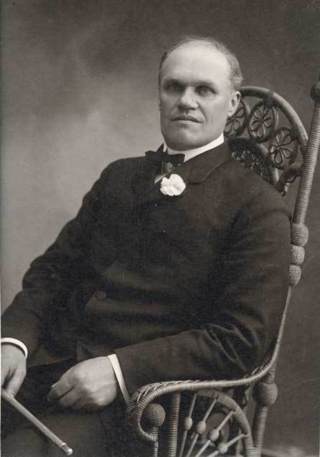
Evan Stephens was a Latter-day Saint composer and hymn writer. He was also the director of the Mormon Tabernacle Choir for 26 years (1890–1916).
Gérald Jean Caussé has been the Presiding Bishop of the Church of Jesus Christ of Latter-day Saints since 9 October 2015. He is the fifteenth man to serve in this position. He has been a general authority of the LDS Church since 2008 and was the first person from France appointed as a general authority. He is the first Presiding Bishop born outside North America since Charles W. Nibley vacated the post in 1925, and the first-ever Presiding Bishop not from an Anglophone country.
Henry Johnson Eyring is an American academic administrator who served as the seventeenth president of Brigham Young University–Idaho (BYU–Idaho) from 2017 to 2023. From 2019 to 2023, he also served as an area seventy in the Church of Jesus Christ of Latter-day Saints. He previously served as both the academic and advancement vice president at BYU–Idaho, as well as director of the master of business administration (MBA) program in Brigham Young University's (BYU) Marriott School of Business.

Joseph John Daynes was the first organist at the Salt Lake Tabernacle and for the Mormon Tabernacle Choir. Daynes was born in Norwich, England, to John Daynes and Eliza Miller. The Daynes family later joined the Church of Jesus Christ of Latter-day Saints and then immigrated to Utah Territory in 1862.

Alex Boyé is a British-American singer, dancer, and actor. He was named the "2017 Rising Artist of the Year" in a contest sponsored by Pepsi and Hard Rock Cafe.

Steven Sharp Nelson is an American cellist. He is best known as "The Cello Guy" of the classical new-age musical group The Piano Guys, with whom he has released eight number-one albums and dozens of music videos. He also has three solo albums to his credit. He is considered a pioneer in "cello-percussion", which enhances traditional cello playing with pizzicato and percussive techniques.
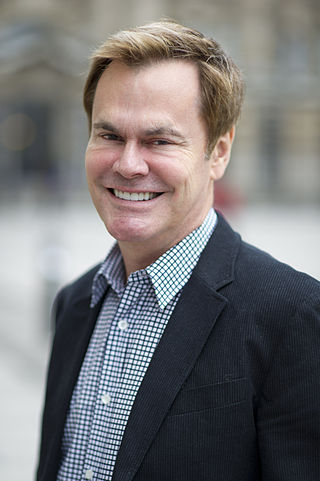
Bruce Wayne Bastian was an American computer programmer, businessperson, and philanthropist. He co-founded WordPerfect with Alan Ashton in 1978.
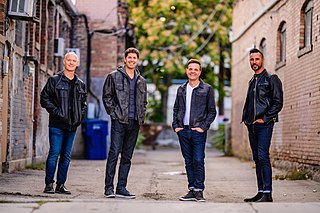
The Piano Guys is an American musical group consisting of pianist Jon Schmidt, cellist Steven Sharp Nelson, videographer Paul Anderson, and music producer Al van der Beek. Originating in Utah, they gained popularity through YouTube, where in 2011 they began posting piano and cello compositions combining classical, pop, film score and original music, showcased through elaborate or cinematic videos. As of March 2020 the group had surpassed 2 billion views on their YouTube channel and had 6.7 million subscribers. Their first eight major-label studio albums, The Piano Guys, The Piano Guys 2, A Family Christmas, Wonders, Uncharted, Christmas Together, Limitless, and 10, each reached number one on Billboard Classical Albums or New Age Albums charts.

Grotrian-Steinweg, known as Grotrian in the US, is a German manufacturer of prestige pianos. The company is based in Braunschweig, Germany, commonly known as Brunswick in English. Grotrian-Steinweg makes premium grand pianos and upright pianos.















